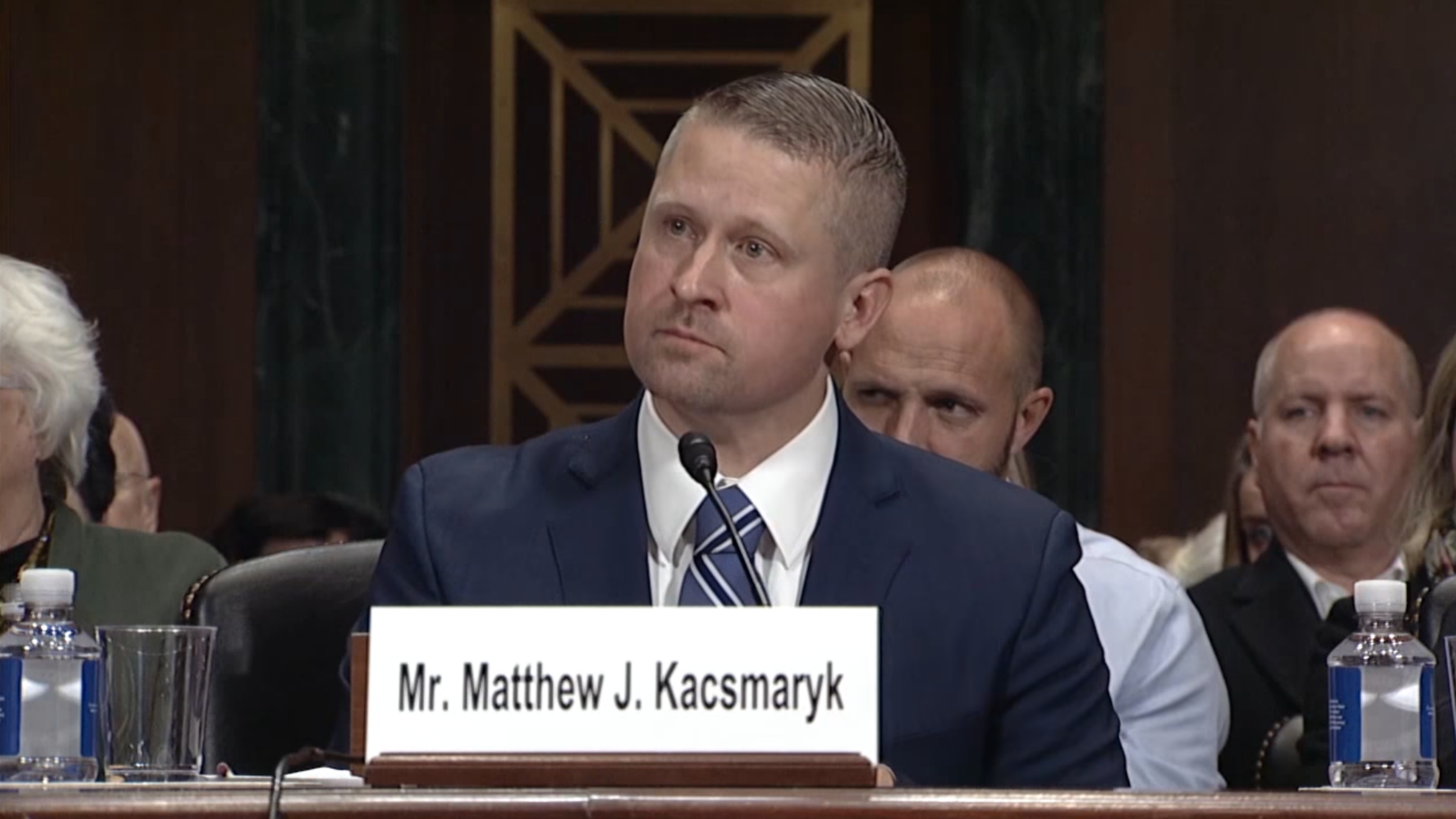For approximately three days earlier this month, federal judges appeared to have something resembling spines. On March 12, the Judicial Conference, a policymaking body for federal courts, published a statement declaring that it was finally taking action to limit “judge shopping”—a practice by which litigants carefully select where to file a case so they can get a particular judge they know is favorable to their cause.
But the Conference quickly seemed to reconsider. Originally, it had stated that all cases that “seek to bar or mandate state or federal action” should be “assigned to judges through a district-wide random selection process,” thus preventing ambitious litigants seeking statewide (or nationwide) injunctions from hand-picking their judge in advance. On March 15, it released new, softer guidance that made its previous guidance seem a lot more optional: The policy, the Conference wrote, “should not be viewed as impairing a court’s authority or discretion,” and should merely inform the exercise of that authority and discretion going forward.
Most federal district courts already use random assignments, but some assign cases to a judge in the division where the case is filed. If you go somewhere that only has a single judge—say, Amarillo, Texas—you can guarantee that your case is heard by the judge of your choosing—say, Matt Kacsmaryk, a Trump appointee whose name has become synonymous with judge shopping in his short time on the bench. When the conservative legal movement wants to ban medication abortion nationwide, reimplement Trump’s anti-immigrant policies, bless employment discrimination against trans people, they go to the Amarillo division of the Northern District of Texas, where, under that division’s case assignment protocols, Kacsmaryk gets the case 95 percent of the time.

Screencap via YouTube
Judge-shopping makes judicial invocations of neutrality and fair play seem awfully suspicious. This is especially dangerous when an injunction from a district court judge could impact the entire United States—a phenomenon that has become increasingly common over the past decade. “We get the idea of having local cases resolved locally,” one member of the Judicial Conference explained, “but when a case is a declaratory judgment action or national injunction, obviously the stakes of the case go beyond that small town.”
Curbing judge-shopping would create hurdles for white Christian nationalist litigants who seek out white Christian nationalist judges in order to implement sweeping, regressive changes to the national legal landscape. So, naturally, Republican officials came out against the Judicial Conference’s policy hard.
On March 14, Senate Minority Leader Mitch McConnell and a couple other GOP senators sent a letter to every district court urging judges to ignore the policy, which, they wrote, “is not legislation.” McConnell also accused the Conference of providing “half-baked ‘guidance’ that just does Washington Democrats’ bidding.” This ignores the fact that the Judicial Conference is composed not of some shadowy collection of “Washington Democrats.” but of sitting federal judges from courts across the country, more than half of whom are Republican appointees. The Conference is presided over by none other than Chief Justice John Roberts.
Republicans already seem satisfied with the Judicial Conference’s hasty retreat: Judge James Ho of the Fifth Circuit Court of Appeals, for example, said he was “glad to see that folks appear to be backing off,” since, he said, “the last thing we should do is gerrymander the rules to favor one particular political viewpoint.” The irony of this is palpable: The Judicial Conference was trying to intervene because the rules are already gerrymandered to favor people who share Ho’s abysmal politics. Thanks to pressure from the right, the rules will stay that way.
The limitation on judge-shopping was good while it lasted—for the Judicial Conference, which initially received praise from the media for “reining in” the Kacsmaryks of the bench. But Kacsmaryk remains rein-free, and highly unlikely to allow a discretionary policy to change the way he does business. Just last year, the Department of Justice tried to transfer a case out of Kacsmaryk’s courtroom on the grounds that the case had nothing to do with Amarillo, Texas and everything to do with shopping for a friendly forum. Kacsmaryk said no.
The Judicial Conference ultimately failed to limit judge shopping in any meaningful sense. But its members accomplished something else: They’ve given the public another reminder that judges cannot be trusted to police themselves, and that conservative whining pays off.




